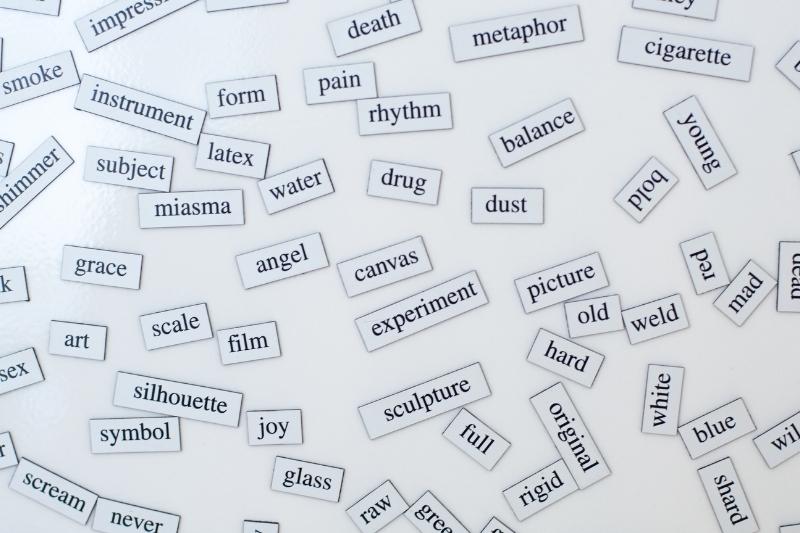When we start learning a language, we feel the easiest way to speak is to think in our mother tongue and then translate in our heads. Unfortunately, this technique can be way harder than it seems. It is way better to think directly in English!
Let’s take a closer look at this topic!
Table of Contents
- Why Translating in Your Head Doesn’t Work
- Identify objects around you in English
- Repeat phrases you hear from native speakers
- Fully immerse yourself in English
- Watch series and movies in English without subtitles
- Train responses to common questions
- Study with materials that don’t provide a translation
- Learn vocabulary in context
- Include English in your daily activities
- Wrapping up
Why Translating in Your Head Doesn’t Work
Different languages have different styles. This difference means that things are not expressed or even thought the same way. If you try to think in your mother tongue, you will find yourself creating a structure that probably doesn’t exist in English.
Every language has its own way of expressing things, and the best way to sound fluent and proficient is to try to emulate that. Plus, translating in your head is hard!
If translation is a study program in universities worldwide, what makes you think it will be easy for you to do it on the spot without any training when having a conversation? People train for years in order to master translation!
Besides, if everyone is speaking freely during the conversation, and you have to stop and translate in your head to intervene, your English will be choppy. Your answers may come late, and you won’t feel as comfortable as you should.
But hey, don’t worry! There’s a solution. In fact, there are 10 ways to eliminate translation from your English-speaking process! Let’s dive into them.
Identify objects around you in English
One of the best ways to start getting acquainted with the language is to identify things that surround you in English. If you do this, you will feel more comfortable whenever those things become part of a conversation and you won’t have to look for the translation in your head.
This idea also applies to situations! Instead of thinking about conversations, people, or relationships in your native language, think about them in English. This way, you will start changing your perception of your surrounding.
When the time comes, the reality you are trying to describe will come to mind directly in English and without having to pass by your native language first.
Repeat phrases you hear from native speakers

Whether you live in an English-speaking country and you have daily conversations with native speakers or you consume content in English on a daily basis, you have access to an unlimited library of phrases to start practicing!
The phrases you hear from native speakers can be a great way to start adding common expressions to your knowledge. If you start repeating these common phrases, you will get to a point where they will come out naturally when you need them.
Besides, if you start repeating them out loud, you will master the pronunciation and progress way faster. You will become a natural just by repeating the phrases you hear!
Fully immerse yourself in English
If you have no choice but to think and speak in English, then you for sure will! Sometimes, we put ourselves in situations where we can easily return to our native language if things go sideways. But what will happen if you just couldn’t do that?
There are many ways to do this, and some are more extreme than others. If you have the budget and the time, you can go visit an English-speaking country and force yourself to speak the language.
If you already live in an English-speaking country, you could force yourself to have social interactions with people at stores, parks, cafes, libraries, bars, and more.
If none of these is a possibility for you, you could create your own English-only environment at home. It can be an hour a day in which you are fully immersed and you block any interference in another language other than English.
Watch series and movies in English without subtitles

“But what if I don’t understand what’s happening?” Well, it is a possibility. The beginning of using this technique can be a bit complicated since you will not be able to follow everything that’s going on.
However, little by little, you will start getting the hang of it and getting accustomed to the situations in English and not in your target language or with the help of subtitles. Your brain will have no choice but to start decoding the language and help you understand.
Plus, it is not such a big deal if you don’t understand everything. Most of the time, you will not understand every single word, and that is completely normal! The important thing is to understand the context and the general ideas. The rest will start becoming clearer with time.
If you feel this is all too drastic and you feel a bit threatened, try watching with subtitles in English. That way, you will have some help but you won’t have to recur to your native language.
The best part? You will have a great time and you won’t feel like you are studying!
Train responses to common questions
There are many questions that you will have to answer many times in your life. Perhaps there’s even a specific situation that just happened and you know people will ask about it. “How was your day?” “Did you have a good time this summer?” and so on.
If you already know or can imagine some of those questions or even situations you would like to share in English, why not prepare for it? It is similar to preparing a script for a play. You will carefully pick the words and phrases in your head.
When the time comes, you will have ready-to-use phrases that you thought about without having to translate. This technique will make you sound more fluent and will give you the confidence to speak freely.
Study with materials that don’t provide a translation
Throughout our English learning process, we get used to receiving a translation when we don’t understand something. Unfortunately, some materials and also teachers don’t allow students to make an effort before providing the solution.
When you study with materials and teachers that don’t provide a translation, you must find a solution for yourself. Your brain makes an extra effort to understand whether through context or other hints that may be visible.
If you avoid looking for the translation right away and you find the solution on your own, you have a sense of accomplishment that helps your brain retain the information. This reward system can help you boost your English learning.
Even though it is easier to just have the translation, you might be hurting your learning by always looking for the easy way out. Start using monolingual dictionaries and any other resource that helps you think in English instead of resorting to your native language.
Learn vocabulary in context

Learning words on their own can be hard. Have you ever tried to learn an unending list of words? It is a painful way to learn vocabulary, mainly because languages don’t work like that.
You will never find isolated words like that in your daily interactions in English. So why not learn them as they come in real life? Focus on learning phrases where the words you are trying to learn are used in context.
That way, you will be able to learn their meaning and use them in a more meaningful way. Perhaps you see the word again and cannot remember the meaning. Yet, if you can remember the context, you will be able to draw the meaning from it!
Include English in your daily activities
If you live in an English-speaking country, this technique is a piece of cake! Just sign up for activities you enjoy, and you will have direct access to learning opportunities. Every instruction will come in English and since it is something you enjoy, you will have a good time.
If this is not the case, you can still include English in your daily activities in a meaningful way! For example, you can set up your phone in English! That way, you will learn common words related to technology.
If you like gaming, for example, you can set your game in English! That way you will see English every time you want to play. This technique will passively contribute to getting used to using the language on a daily basis.
Although in some cases this will be impossible to do, you can spot any opportunity and maximize your learning!
Wrapping up
By using these techniques, you will be able to have fluent conversations and become a master of the language. Practice regularly and don’t forget to speak out loud every time you can, even if you are alone!
If you do it, you will not only feel more comfortable speaking but you will also get your mouth used to produce the sounds you need. Combine it with the tips you just read and your English will be unstoppable.